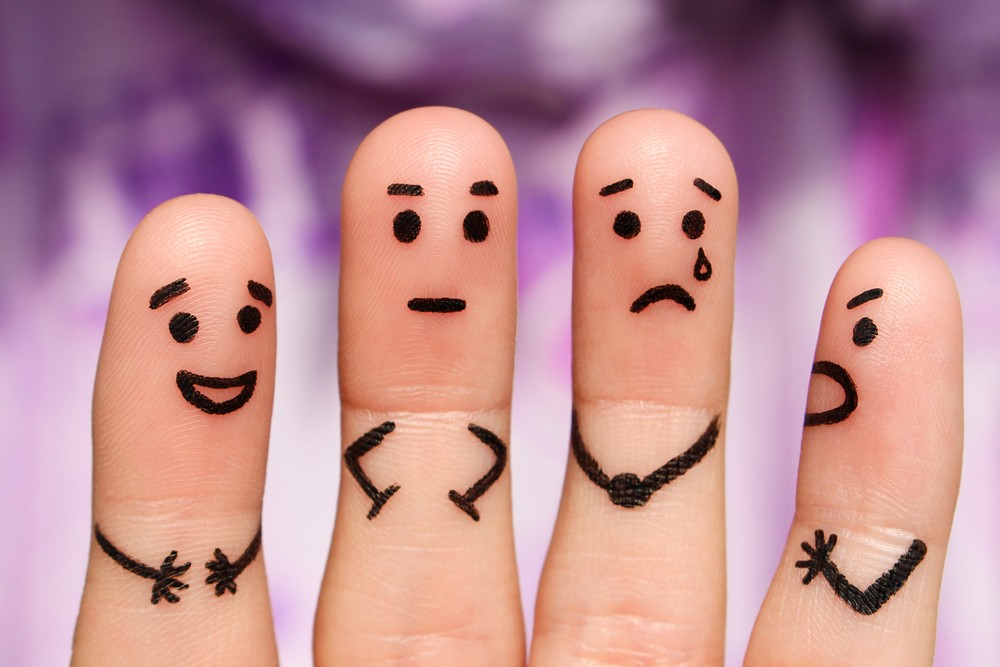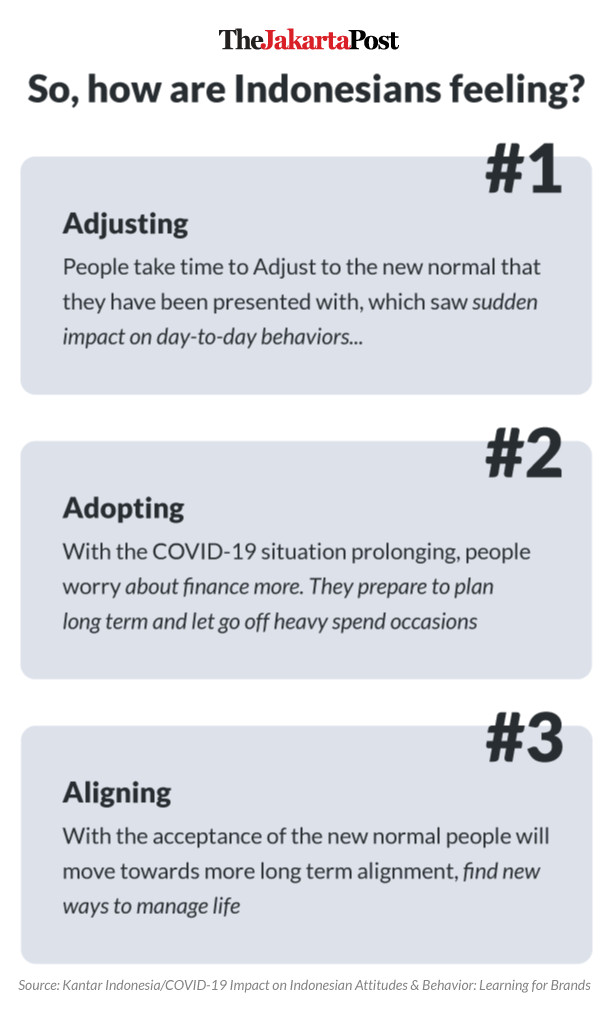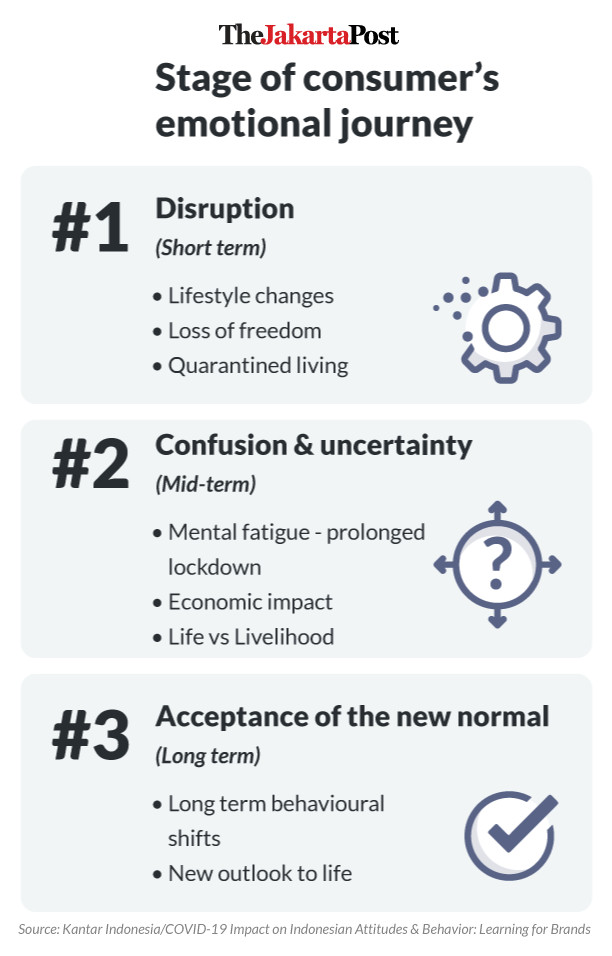Popular Reads
Top Results
Can't find what you're looking for?
View all search resultsPopular Reads
Top Results
Can't find what you're looking for?
View all search resultsThree stages of emotion on COVID-19 journey: Where are you now?
People find a sense of security and the freedom to socialize and leave the house the most difficult things to give up, according to market research firm Kantar Indonesia.
Change text size
Gift Premium Articles
to Anyone
P
eople around the world are coping with the COVID-19 pandemic differently. Some are anxious, others unperturbed. Some may find it difficult to get organized, while for others there is no option but for life to go on as normal.
People find a sense of security and the freedom to socialize and leave the house the most difficult things to give up in their daily lives, according to market research firm Kantar Indonesia.
The change in lifestyle has generally resulted in a three-stage emotional journey stemming from behavioral shifts, according to a Kantar Indonesia report titled COVID-19 Impact on Indonesian Attitudes & Behavior: Learning for Brands.
How Indonesians are feeling on COVID-19. (JP/File)The first is a short-term stage marked by sudden disruption, along with lifestyle changes and a growing sense of a loss of freedom amid quarantine. This is followed by confusion and uncertainty, which is indicated by mental fatigue due to prolonged lockdown, the economic impact kicking in and thoughts about life and livelihoods arising. The third is the acceptance of the new normal, with long-term behavioral shifts and a new outlook on life.
“People take time to adjust to the new normal they have been presented with, which has a sudden impact on day-to-day behavior,” the document explains.
“As the COVID-19 [situation] lasts, people increasingly worry about finances. They prepare to plan for the long term and let go of heavy spending occasions,” it reads. “With the acceptance of the new normal people will move toward a more long-term alignment, find new ways to manage life.”
Kantar Indonesia’s stages of emotional journey and feelings were created based on surveys on Indonesians’ psychological state amid the COVID-19 pandemic, in line with recent academic research into the impacts of COVID-19 on society’s mental well-being. Psychology experts are warning of the pandemic’s profound and pervasive impact on global mental health as people around the world struggle to cope with isolated living and anxiety spikes.
Read also: Pandemic shifts business landscape, strategy
Based on a sample of 6,428 people, Kantar Indonesia measured Indonesians’ COVID-19 anxiety meter and found an exponential increase in anxiety over the novel coronavirus within two weeks in March. On March 25, 68 percent were concerned but said they knew what to do, while 10 percent were very concerned and don’t know what to do. On March 13, the numbers had been at just 30 percent and 13 percent, respectively.
“We see that Indonesians are concerned but assured,” Kantar Indonesia wrote. “Indonesia and Malaysia are the only countries in the region that have maintained a net-positive sentiment in their social media chatter about COVID-19.”












